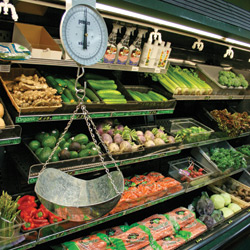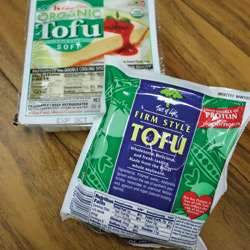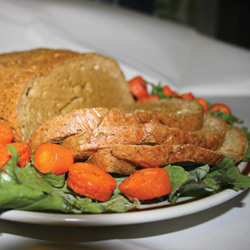I have no doubt, that it is a part of destiny for the human race in its gradual development to leave off the eating of animals in the natural process, as the savage tribes have left off eating each other, when they came into contact with the more civilized.” —Henry David Thoreau
Our relationship with food is complicated, to say the least. We agonize over the pleasures to be found in a pint of ice cream. We can’t stop ourselves from eating just one more slice of pizza, even if it means an extra 20 minutes on the treadmill. Food is our best friend and our arch-nemesis. It sustains us, and yet is a key factor in a host of maladies. Given these contradictions, it’s no wonder so many are re-examining the ways we think about what we eat.
With the costs of healthcare on the rise and the resulting emphasis on healthier lifestyles, many people are exploring dietary options for sustained wellness. And while there’s no magic bullet, research suggests that a plant-based, whole-food diet can dramatically reduce the risk of heart disease, diabetes and even some forms of cancer.
From CNN to Time magazine, vegetarianism is front-page news. Here’s the skinny on an age-old way of thinking about food—our most intimate of companions.
Meatless and Main Street?
In a nationwide poll, the American Dietetic Association found that just over two percent of Americans follow a vegetarian diet. That’s slightly more than seven million people. The ADA’s official position states that “appropriately planned vegetarian diets are healthful, nutritionally adequate and provide health benefits in the prevention and treatment of certain diseases.”
Vegetarians can count among their ranks some of the most influential people who ever lived: Leonardo DaVinci, Mark Twain and Mahatma Ghandi all adopted a vegetarian diet for one reason or another. The allure of vegetarianism compelled Albert Einstein to proclaim, “Nothing will benefit human health and increase chances for survival of life on Earth as much as the evolution to a vegetarian diet.”
 While most people will never take the plunge, it’s likely that a considerable portion of the populace, whether consciously or not, has experimented with a loose form of vegetarianism called flexitarianism.
While most people will never take the plunge, it’s likely that a considerable portion of the populace, whether consciously or not, has experimented with a loose form of vegetarianism called flexitarianism.
Veggie Taxonomy
A flexitarian either seeks out vegetarian meals occasionally, or avoids meat over an extended period of time. Granted, that seems like a pretty vague stance to deserve its own category, but it represents one side of a dietary continuum. In fact, vegetarians seem to have become expert taxonomists.
Strictly speaking, a vegetarian diet is defined as one in which no animal flesh is consumed. As dietary restrictions are eased, the field broadens into further subcategories: pescetarians (vegetarian plus seafood), ovo-lacto vegetarians (allowing eggs, milk and dairy), and lacto-vegetarians (milk and dairy, minus the egg). At the far end of this continuum lies veganism.
Last year, Bill Clinton announced that he had become a vegan. As internet searches for that keyword soared, Clinton, who underwent quadruple bypass surgery in 2004, claims he’s never felt better. Once lampooned by Saturday Night Live for his McDonalds indulgences, the former president has lost 24 pounds and significantly reduced his cholesterol levels since making the shift.
Clinton’s diet now contains zero animal products: no meat, no milk, no cheese…even honey is off the table. In addition to avoiding all dietary animal derivatives, many vegans also eschew leather and cosmetics that may contain animal byproducts.
 Forks Over Knives
Forks Over Knives
Drs. Dean Ornish and Caldwell Esselstyn Jr., the architects of Clinton’s diet, are at the forefront of a movement that touts the benefits of vegetarianism as a modern panacea. Esselstyn’s book Prevent and Reverse Heart Disease details his research on 17 patients over the course of a dozen years. Prior to adopting a vegan diet containing no processed foods or oils, the study’s participants had shared 49 significant coronary events and a battery of aggressive treatments among them. In the 12 years following intervention, not a single patient experienced further heart-related incident. Today, heart disease remains the No. 1 killer of Americans, while Esselstyn’s findings are the subject of a popular documentary, Forks Over Knives, which asserts that his dietary recommendations are “heart attack-proof.”
With obesity and diabetes growing to epidemic proportions, a diet low in cholesterol and saturated fats may be the answer to our healthcare conundrum. The China-Cornell-Oxford-Project, a 20-year look at the effects of a primarily plant-based diet in rural China, found a dramatically lower rate of chronic disease compared to the United States. And yet a more recent study found that the incidence of some cancers is on the rise in China. As the Chinese grow in affluence and their diets become more Westernized, they are consuming greater quantities of animal proteins. This link between diet and disease will likely provide a fascinating study as China plows ahead in the 21st-century global economy.
To Each Their Own
Buddhists, Hindus and Seventh-Day Adventists have all adopted vegetarian diets for traditional, spiritual and ethical reasons. Yet for many, a wide variety of precipitating factors contribute to this decision.
Ethical considerations are a primary concern for many vegetarians, as modern animal husbandry has taken a significantly darker turn in recent decades. With six billion people to feed and limited resources with which to accomplish the feat, corporate farms must squeeze every ounce of efficiency out of their operations. More often than not, efficiency trumps a more humane approach. Grazing has become a thing of the past, and beef grown on corporate farms may never see sunlight. It’s widely known that growth hormones are given to cows and chickens to maximize yields. What is less known is that many byproducts of these hormones linger from farm to table. We are what we eat, for better or worse.
Some choose a vegetarian diet for reasons of environmental sustainability. “To produce one pound of feedlot beef requires about 2,400 gallons of water and seven pounds of grain,” reports the United Nations. “Considering that the average American consumes 97 pounds of beef each year, even modest reductions in meat consumption…would substantially reduce the burden on our natural resources.” Following U.N. estimates and accounting for the current U.S. population, we could potentially feed 800 million people with the resources tied up in U.S. livestock production.
Ultimately, the decision to make the switch is an individual journey. Most people consider the issue from all sides and make a personal decision based on their own cultural, medical and philosophical coordinates. Adopting a vegetarian diet means taking a divergent path—one in which education and preparation are essential.
Leading By Example
Dr. Michele Couri, the Peoria-based OB/GYN, is truly passionate about nutrition. Her decision to become vegan followed a well-informed trajectory. After reading several books on the subject, she made the shift in 2009. Dr. Couri cites the lack of cholesterol and the abundant fiber, vitamin and mineral content as a major advantage to a vegan diet.
But for Couri, it wasn’t just the health benefits that sold her on veganism. After reading John Robbins’ highly influential Diet for a New America, she found the ethical argument equally compelling. “It very implicitly described how what we eat affects ourselves, animals and the planet. After reading that book, I never ate meat again…”
Dr. Couri is realistic that not everyone will adopt a vegan diet, yet she considers that real change starts with personal responsibility. “As a physician, I truly believe in leading by example. I really don’t know of a more powerful experience than to plant seeds that will change the course of another’s life. The humility of this lies in not knowing whom we actually touch. The power lies in knowing that we unmistakably do.” a&s
Ask A Dietician
“The health benefits of a vegetarian diet are the No. 1 reason why people choose to follow this way of eating,” claims Helen Cox, director of the Options Center for Health and Education in Peoria Heights. But “[it can be] challenging to get enough protein without adding soy-based products.”
Critics often cite protein deficiency as a significant drawback to the vegetarian diet. While maintaining that a vegetarian diet can provide all the essential components for healthy bodily function, Cox agrees that those who pursue vegetarianism must exercise nutritional caution. It can be difficult to strike the right balance between nutrient-rich veggies, carbs and the right sources of protein, especially when dining out.
A vegetarian diet isn’t inherently a healthy one—after all, a vegetarian can live on potato chips and Oreos! Many restaurants offer vegetarian pasta dishes, but those are often high in carbs that can pack on excess weight. As is usually the case, the key is eating a variety of foods to source your nutritional needs.
The recommended daily allowance of protein for a male between the ages of 19 and 75 is 66 grams. On any given day, those who eat a varied diet can easily surpass this threshold without meat. For those seeking protein alternatives, Cox lists numerous sources, along with the amount of protein in each serving.
- Almonds, ¼ cup, 8g
- Black beans, 1 cup cooked, 15g
- Broccoli, 1 cup cooked, 4g
- Brown rice, 1 cup cooked, 5g
- Chickpeas, 1 cup cooked, 12g
- Kidney beans, 1 cup cooked, 13g
- Lentils, 1 cup cooked, 18g
- Peanut butter, 2 Tbsp, 8g
- Quinoa, 1 cup cooked, 9g
- Seitan, 3oz, 31g
- Soy milk, 1 cup, 7g
- Spinach, 1 cup cooked, 5g
- Tempeh, 1 cup, 41g
- Tofu, firm, 4oz, 11g
- Whole wheat bread, 2 slices, 5g.



